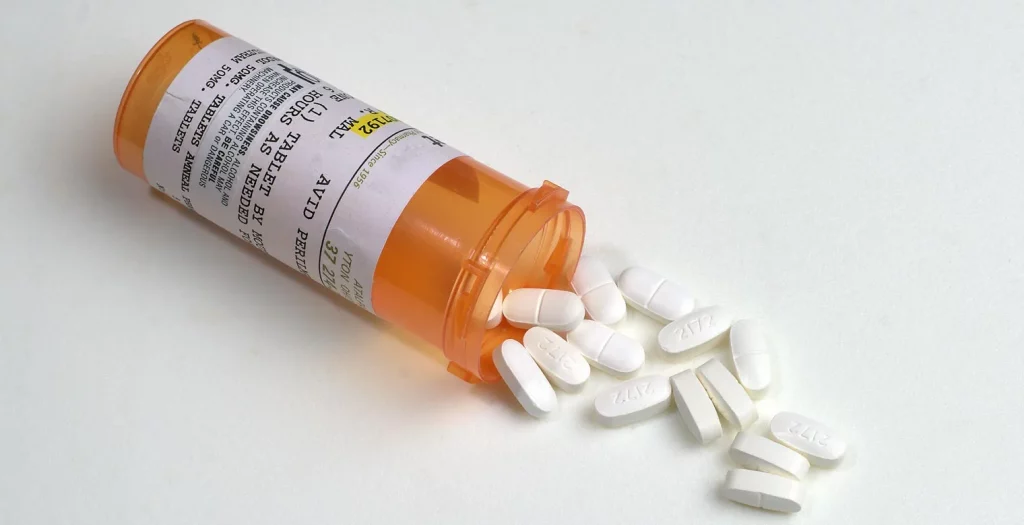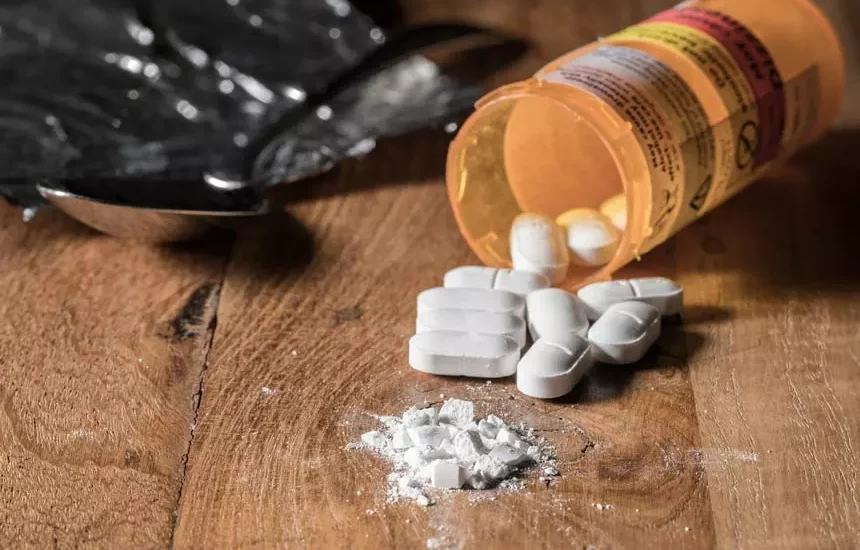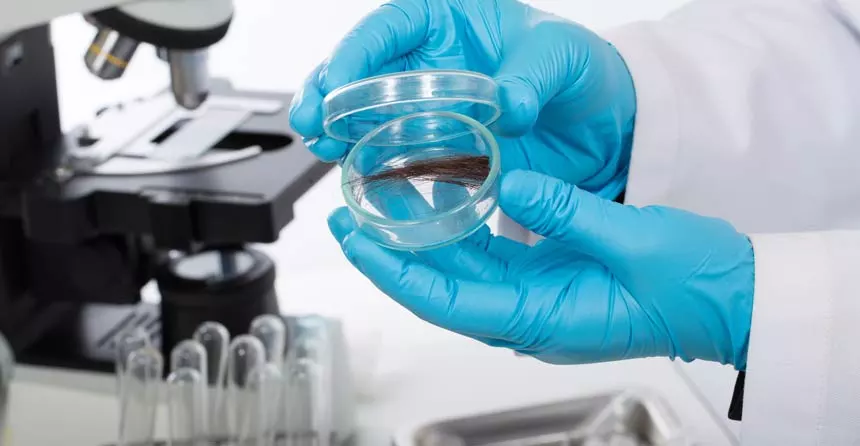Painkillers in Your Body
Table of Contents
- Painkillers in Your Body
- How Long Does Hydrocodone Stay in Your System? Know the Factors
- How Popular a Drug is Hydrocodone?
- What Impacts Hydrocodone Half-Life?
- Traditional or Quick-Acting Hydrocodone
- What Affects How Long Hydrocodone Stays in your System?
- What Testing is Used for Hydrocodone?
- Crucial Information About Testing for Hydrocodone
- Is Hydrocodone a Euphoric Drug?
- Hydrocodone Withdrawal Symptoms
- The Risk Factors to Consider With Hydrocodone
- Find Hydrocodone Treatment Centers Now!
- FAQs on Hydrocodone in Your System
- Medically Reviewed By
Like many medications, Hydrocodone can linger inside your body for quite a long time. You may have been taking hydrocodone for some time now, and want to know about the effects you can expect when you stop. Or maybe you have an employment test coming up and would prefer to present clean urine.
But exactly how long does Hydrocodone stay in the body? What factors affect the time the body retains it? Read on to find answers now!
How Long Does Hydrocodone Stay in Your System? Know the Factors
How long does hydrocodone stay in your system? the truth is that it varies from person to person. Genetics and age play a part in the length of time the body retains the drug. Dose and different forms (such as extended-release medications) may also speed up or slow down the elimination of the substance.
Testing methods may vary the results of a drug test. For example, while blood and saliva testing may offer negative results, urine and hair testing might offer positive results. Generally speaking, the half-life of hydrocodone is between four to eight hours. The shorter-lasting form remains detectable within the body for up to twenty (20) hours since the last use. The longer-acting form remains detectable for up to 48 hours.
The Uses of Hydrocodone
Hydrocodone is a form of narcotic opioid that is typically used in the treatment of mid-range to major pain. Despite its reputation as a substance that can get someone high, many people actually perceive the effects produced by the drug as sleep-inducing and not euphoric.
How Popular a Drug is Hydrocodone?
Hydrocodone remains the single most common narcotic opioid prescribed within the United States. It’s easy to get addicted to hydrocodone because it’s often prescribed for long-term pain, including chronic back pain and arthritis. Hydrocodone is a form of opiate medication that works by changing the way your brain responds to pain signals.
You may be prescribed hydrocodone if you have severe pain after surgery or an injury. It’s also sometimes given to people who have been diagnosed with cancer or other conditions that cause chronic pain. If we must answer the question of how long hydrocodone stays in the body, we must first look at how it works.
The prevailing wisdom suggests that if you want to produce a drug test free of drugs, you avoid using the thing being tested for up to a day before the test comes up. Truth is, this method is as good as flipping a coin – you’re just as likely to test negative as you are to test positive. If you need to pass the test, you should be extremely careful. The timeline in which the drug passes through each person’s system varies wildly.
What Impacts Hydrocodone Half-Life?
Hydrocodone stays in the body for an uncertain period. While one person might test negative within twenty-four hours of their last dose, another person may need to wait three days to test negative. Many factors play a part in how the test comes out, including the typical dosage a person takes and how often they use the substance.
Chronic pain is also a significant factor that should be considered. Prescribed hydrocodone is used for moderate to severe pain, and your pain levels can rapidly increase if you miss a single dose of the drug. Generally, if you use a higher dosage of this drug, you’re likely to have more intense feelings of pain if you miss a dose.
Opioid withdrawal can have severe withdrawal symptoms. If you’re trying to pass a drug test under these conditions, you may be endangering your well-being or even risking your life.
If you’re taking a high dose of hydrocodone for chronic pain and need to take a drug test, you should seek out medical help to guide you as you abstain. Going “cold turkey” is not recommended at all.
Traditional or Quick-Acting Hydrocodone
Hydrocodone prescriptions come in a short-term format which covers between a couple of hours to a complete day. It’s available with drugs such as ibuprofen or acetaminophen. It’s commonly prescribed as Dilaudid, Tylenol with codeine, Percocet, and Vicodin.
These medicines kick in within an hour, peaking at two hours and retaining a stable level for anywhere between four to six hours. The half-life of short-acting hydrocodone is around four hours. A drug’s half-life refers to how long it takes the body to eliminate half of the dose. It typically takes your body several half-lives to eliminate hydrocodone completely. Typically, your body needs five half-lives, working out to around twenty (20) hours.
Short-acting hydrocodone can be habit-forming, so it’s not a good idea to take these drugs if you’re pregnant or breastfeeding. Side effects of short-acting hydrocodone include confusion, constipation, dizziness, drowsiness, headache, nausea, and vomiting. In rare cases, taking this drug may result in severe allergic reactions such as extreme swelling of the face or throat (anaphylaxis).
Extended Release Hydrocodone
Hydrocodone also comes in a long-acting formulation, which is an opioid analgesic prescription painkiller. Patients taking this version of hydrocodone use it to manage chronic pain. This drug is only used when the patient needs long-term pain relief, and all other options have proved ineffective for that purpose. Long-acting hydrocodone is designed to last longer than short-acting opioids like Vicodin and Percocet.
The Food and Drug Administration approved long-acting hydrocodone in January 2011 after testing showed it was safe and effective for treating chronic pain (pain that lasts more than three months).
Long-Acting (LA) hydrocodone is a unique form of this drug that allows patients to take less frequent doses. It’s also referred to as sustained-release (SR), extended-release, and controlled-release. The long-acting formulation takes longer to flush out than its short-acting cousin.
Long-acting hydrocodone contains different amounts of the active ingredient, hydrocodone bitartrate, which helps relieve pain. The drug is designed to dissolve slowly in your body over time, which can help you avoid a sudden rush of medication that may cause nausea or vomiting. This type of medication may also help prevent physical dependence on opioids by reducing your need for frequent doses throughout the day.
These powerful prescription drugs usually take up to five hours to reach maximum pain relief. Up to 30 hours afterward, they can maintain this level of operation. The half-life of this medication may be as much as nine hours, so it’s best to wait at least 45 hours before undergoing a test.
What Affects How Long Hydrocodone Stays in your System?
Several factors contribute to how long hydrocodone stays detectable within your body. Among the factors we know about include:
- Genetics: Along with other factors, research has shown that genes impact how the body processes hydrocodone. Additional research has shown a genetic predisposition toward addiction.
- Age: A younger body can get rid of hydrocodone much more effectively than an older body. This is down to younger persons having faster metabolic rates, and thus, their bodies are able to process what passes through them more quickly and efficiently. Older people tend to process drugs more slowly than younger people do. So if you’re 65 or older, hydrocodone may remain in your body longer than if you were younger than 65.
- Liver health & kidney health: Both of these organs are crucial to helping your body contain and eliminate drugs from your system. Damage to either organ will slow down elimination. The liver plays an important role in removing drugs from your body because it processes chemicals into forms that can be excreted through urine or stool. When your liver isn’t working properly, it takes longer for it to convert hydrocodone into compounds that can be excreted. This can result in higher concentrations of hydrocodone in the bloodstream and longer detection times by drug tests.
- How Often it is Used and Amounts: If a person is using this drug over the long term, it requires a lot longer for the body to eliminate it completely, as opposed to them taking a single dose of the substance. This is due to a build-up, of sorts, of the substance in the system. Frequent use of hydrocodone can also cause your body to develop a tolerance to the drug.
What Testing is Used for Hydrocodone?
Several tests can be used to detect the presence of hydrocodone within your body, including:
- Urine test
- Blood test
- Hair Follicle test
- Saliva test
Crucial Information About Testing for Hydrocodone
The common idea that if a person can’t feel the effects of a drug, then it’s no longer in the body is not factual. Hydrocodone can still be detected in the body even when the latent euphoric effects are no longer felt.
Drug tests don’t measure the drug but rather the breakdown products drugs produce that are stored in the body over the short term. Norhydrocodone (one of the hydrocodone’s breakdown products) can stay in the body for as many as three days after the last dose. The detection cutoff level varies by test and the lab conducting the tests.
How Long Does Hydrocodone Stay in Your Urine?
The most common detection tool used for hydrocodone is the urine test. Norhydrocodone can easily be detected through urine samples, so a urine test could show the usage of the drug for up to three days after the last dose. If you’re taking hydrocodone daily for chronic pain, it’ll likely show up on a drug test for weeks after you stop taking it.
How Long Does Hydrocodone Stay in Your Hair?
A hair follicle drug test can reveal if you took hydrocodone over the last ninety days. However, if you are taking the drug on a regular basis, it may be detectable for longer periods of time. All it takes is a half-inch of hair to test for the presence of hydrocodone.
How Long Does Hydrocodone Stay in Your Saliva?
A saliva test can only detect hydrocodone between twelve and thirty-six hours after the last use of the substance. It can stay in your system for as long as a day and a half.
How Long Does Hydrocodone Stay in Your Blood?
Hydrocodone levels in the blood peak around 1.3 hours after the last dose. A blood test can pick up the traces of hydrocodone up to twenty-four hours since the last dose.
Is Hydrocodone a Euphoric Drug?
Newer studies suggest that the average person may not get the same level of euphoria as was once believed. Moreover, many patients reveal that their first encounter with the drug left them feeling worse, not better. Cognitive neuroscientist Siri Leknes recently undertook a study to determine whether the euphoric effects of hydrocodone affected people the way anecdotal evidence suggests.
Older studies, according to the literature reviews, drew the conclusion that many of the participants’ euphoric feelings came from the drug’s use. Participants noted a “warm and fuzzy state,” referring to the opioid high. However, participants in this older study were mostly recovering addicts, and their testimonials were not taken as 100% reliable.
Dr. Leknes intended to look at the premise of “whether the average healthy person finds bliss while hooked to an opioid drip.” 160 participants made up the study, each receiving remifentanil, a strong opioid drug used as an anesthetic for minor surgery.
The patients all described a “high” after taking remifentanil. On average, however, they felt 0.5 points worse when asked to put their feelings on a 10-point scale following drug ingestion.
Most patients didn’t feel any euphoria upon taking the drug. Individuals that had previously taken opioids seemed to respond slightly better than those that had never taken them before.
A small minority of patients said they felt better when they took the remifentanil. However, this feeling was minor at best. Even those patients stated that their overall experience only rated a “five” on a scale of one to ten.
This study suggests the feeling of euphoria we associate with the drug may be overstated. It would be better to see this “euphoric” feeling as a feeling of relief that the pain they are dealing with has temporarily subsided.
Hydrocodone Withdrawal Symptoms
Withdrawal symptoms typically occur when a person is addicted to the substance and wants to stop using it. The severity of withdrawal depends on a number of factors including how long the person has been abusing the drug and how much the person takes daily. Some people experience mild symptoms during withdrawal, while others may experience severe symptoms that require medical attention and intervention.
The withdrawal symptoms from Hydrocodone are similar to other opioids and include vomiting, sweating, chills and cold flashes, fast heartbeat, muscle and bone pain, insomnia, diarrhea, cramping, and general stress to the digestive system.
The National Institute on Drug Abuse (NIDA) reports that while people who are dependent on opioids may experience withdrawal symptoms when they stop taking their drugs, few experience serious side effects. However, it is possible that withdrawal from hydrocodone could lead to complications if you don’t get the right treatment.
The Risk Factors to Consider With Hydrocodone
As a Schedule II controlled substance, hydrocodone has massive potential for abuse and misuse. Even when prescribed by a doctor and used as directed, negative fallout may occur. The FDA warns that hydrocodone products are addictive when taken as directed by a doctor and can lead to tolerance, dependence, and withdrawal symptoms when they are stopped suddenly. Tolerance occurs when higher dosages are needed to produce the same effect as before; dependence occurs when stopping use causes unpleasant physical symptoms; withdrawal occurs when stopping use causes physical symptoms such as insomnia, nausea, and vomiting.
Additionally, people who have a genetic predisposition for addiction are at higher risk of addiction than others. The most current studies indicate that both genetic markers and environmental factors are needed to produce addiction. A genetic predisposition to substance abuse coupled with high volumes of environmental stress may lead to undesirable drug-seeking behavior.
Researchers theorized early childhood trauma could play a part in reducing coping ability when high levels of environmental stress act on a child. Underlying mental health issues are often responsible for opiates and other drugs in general.
Find Hydrocodone Treatment Centers Now!
Hydrocodone addiction can be extremely dangerous. Like all opioids, hydrocodone can cause physical dependence and addiction when taken for long periods of time or in large doses. Addiction can lead to serious health problems, including liver, and kidney damage, even death.
There are many different types of rehab options available when seeking treatment for your hydrocodone addiction. The type of rehab program that would be best suited for your needs will depend on factors such as:
- The underlying mental health issues and co-occurring disorders.
- The extent of the addiction – how long the person has been addicted to hydrocodone and the amount of medication routinely taken.
You should learn more about effective forms of treatment for hydrocodone addiction. You can contact the team at Find Addiction Rehabs 24/7. You can also visit us online if you prefer.
The facilities in our network offer an exhaustive array of industry-leading recovery services. We have programs that deal with inpatient, outpatient, detox, dual diagnosis, and even partial care. Contact us today to learn more!
FAQs on Hydrocodone in Your System
How long does hydrocodone stay in your system?
The amount of time you’ll have hydrocodone in your system varies from person to person and is based on several factors. In the short term, hydrocodone may only stay in your system for a day, but occasionally, it may last for a few weeks. Hair samples can display signs of hydrocodone up to ninety (90) days after last use.
Is hydrocodone addiction common?
Hydrocodone addiction has been the second most frequently encountered opioid pharmaceutical addiction since its introduction in 2009. It affects millions of people worldwide.
What sort of addiction treatment works for hydrocodone addiction?
Depending on a person’s attachment to the drug and the amount they use it, addiction treatment options can span several methods. These may include physical and psychological means to help a patient overcome their addiction. Long-term treatment may also incorporate community integration efforts.
Do genetics play a part in hydrocodone addiction?
Genetics, alongside environmental factors, play a significant part in hydrocodone addiction. Recent studies have shown that genetic markers alone are not enough to lead to drug-seeking and drug-using behavior. Instead, it’s usually a combination of both, together with childhood trauma, that could cause this behavior in adults.
Deborah Tayloe is a freelance writer specializing in health and sciences. Deborah earned a B.S.Ed. in Secondary Education/English, accompanied by a Spanish minor. Her writing expertise allows her to craft engaging, impactful articles to help people be well.
In addition, she holds a fully accredited Certificate of Natural Medicine and is a certified Herbalist. Through her understanding of complementary medicine, Deborah helps medical professionals give people the information they need to embrace natural approaches to wellness.
When she’s not working, Deborah trains for 5K races and advocates for animal rights.





